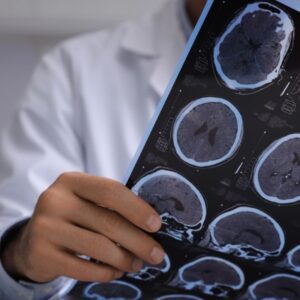 Alcohol poisoning is a dangerous, potentially fatal, effect of drinking large amounts of alcohol in a short period of time. For many people, a case of alcohol poisoning is the “rock bottom” moment that inspires them to seek addiction treatment.
Alcohol poisoning is a dangerous, potentially fatal, effect of drinking large amounts of alcohol in a short period of time. For many people, a case of alcohol poisoning is the “rock bottom” moment that inspires them to seek addiction treatment.
Understanding Alcohol Poisoning
Alcoholic beverages contain acetaldehyde and acetic acid, two toxic substances that the body must work to eliminate. The liver does the majority of this work, although some alcohol is eliminated through a person’s breath, sweat, and urine. Alcohol poisoning occurs when a person consumes more alcohol than the body can process.
A person is considered legally intoxicated with a blood alcohol content (BAC) of 0.08%. The signs of alcohol poisoning normally begin to appear when a person’s BAC reaches 0.16%. Alcohol poisoning can be fatal when a person’s BAC approaches 0.30%.
Alcohol poisoning is caused by binge drinking, but it’s difficult to say with certainty how much alcohol will cause this condition. Gender, weight, body composition, overall health, and past drinking habits affect a person’s alcohol tolerance. Whether a person is drinking on an empty stomach and what type of alcohol they are consuming also plays a role.
One drink is defined as:
- 12 ounces of regular beer
- 8 to 9 ounces of malt liquor
- 5 ounces of wine
- 1.5 ounces of 80-proof hard liquor
Mixed drinks often contain more than one serving of alcohol, making this alcohol consumption particularly risky. When someone can’t easily determine how much alcohol they are drinking, it becomes possible to reach dangerous levels without realizing what has happened.
Although alcohol poisoning is most often associated with teens and young adults who do not fully understand the risks of binge drinking, people of any age can experience this dangerous complication of excess alcohol consumption.
Symptoms of Alcohol Poisoning
Symptoms of alcohol poisoning can include:
- Pale or blue-tinged skin, similar to that of a drowning victim
- Cold or clammy hands
- Vomiting
- Confusion
- Disorientation
- Memory loss
- Low body temperature
- Irregular or slowed breathing
- Seizures
- Passing out without being able to be awakened
Please note that a person does not need to be experiencing all of these symptoms to be suffering from alcohol poisoning.
What to Do
If you think that someone is suffering from alcohol poisoning, this is a medical emergency. Untreated alcohol poisoning can lead to permanent brain damage or death.
- Call 911 immediately. A person can’t sleep off alcohol poisoning, even if they drink often. Cold showers, fresh air, or black coffee will also do nothing to help. Without treatment, they may die.
- Provide emergency personnel with any information you know. If you know what type of alcohol the person was drinking, how much they had to drink, or if they’ve mixed alcohol with other drugs such as prescription opioid painkillers, this can help first responders provide the most appropriate treatment.
- Do not leave the person alone. Someone who loses consciousness may choke on their own vomit and be unable to breathe, due to the way alcohol poisoning affects the gag reflex.
Underage drinkers are often hesitant to seek help for suspected alcohol poisoning due to a fear of facing legal trouble. However, Good Samaritan laws protect individuals who report alcohol poisoning or drug overdose from legal prosecution related to their own drug or alcohol use.
Treatment for Alcohol Poisoning
Alcohol poisoning is formally diagnosed with blood or urine tests to check blood alcohol levels and look for low blood sugar or other signs of alcohol toxicity. Treatment focuses on helping the body safely rid itself of alcohol. This might include:
- Careful monitoring
- Positioning to prevent breathing or choking problems
- IV fluids to prevent dehydration
- Oxygen therapy for breathing issues
- Administering vitamins or glucose
Once a person’s condition has been stabilized, it’s time to consider if treatment for alcohol addiction is necessary. In the majority of cases, someone who experiencing alcohol poisoning meets the criteria for having an alcohol use disorder (AUD). They may:
- Be unable to limit their alcohol consumption
- Ignore other responsibilities or interests to spend more time drinking
- Become defensive or lie when confronted about their behavior
Suffer frequent blackouts or engage in risky behavior such as drunk driving - Experience cravings for alcohol
- Have withdrawal symptoms when they are unable to drink
Waypoint Recovery Center, a leading South Carolina addiction treatment center, offers comprehensive care for men and women struggling with substance abuse. Our residential treatment program includes individual and group therapy, as well as a wide range of holistic treatments designed to heal the mind, body, and spirit. If you’re worried about your loved one, we can schedule an individual assessment to determine the best course of action.





